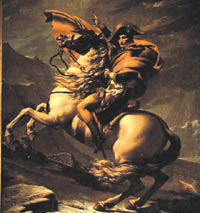Quotable
quotes
War is corruption and disgrace
"A prisoner of war is a man who tries
to kill you and fails, and then asks you not to kill him"
Sir Winston Churchill (1874-1965), British historian, statesman
and biographer. He won the Nobel Prize for Literature in 1953. He served in
various governmental posts and was appointed lord of the admiralty in 1911.
"War is
an instrument entirely inefficient toward redressing wrong; and multiplies,
instead of indemnifying losses."
Thomas Jefferson (1743-1826),
the third U.S. president and an author of the Declaration of Independence.
He served two distinguished terms as president. In 1808, he retired and continued
pursuing his widely diverse interests in science, natural history, philosophy,
and the classics.
"War is delightful to those who have
had no experience of it."
Desiderius
Erasmus (1533-1603), Dutch
philosopher and humanist. He was the illegitimate son of Roger Gerard. He
never used his father's name and called himself Desiderius, meaning "the
desired one" in Latin. He studied and taught in Paris, and, later, in
most of the cultural centres in Europe, including Oxford and Cambridge.
"Peace is the
happy natural state of man; war is corruption and disgrace."
James Thomson(1854-1900), Scottish poet. He was educated at the
University of Edinburgh. He published poetry there, but left university early
and made his way to London.
![]()
5 May 1821
Napoleon dies in exile
| Courtesy of Palph Boerke's Collection of Art |
 |
| Napoleon at War. |
|
|